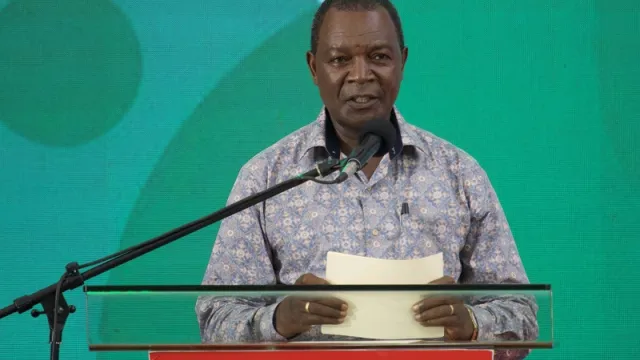High-interest rate regime sees Kenya shift financing strategy

High-interest rate regime sees Kenya shift financing strategy
Kenya has announced a shift in its financing strategy, pivoting towards concessional loans due to uncertainties surrounding access to global bond markets. At the moment, Kenya's public finances are facing challenges from the lingering impacts of the COVID-19 pandemic and the impact of the worst drought in a half-century linked to climate change.
At the same time, investors from across the world have been closely monitoring Kenya's ability to secure funding before the maturity of its $2 billion Eurobond next June.
"In light of the uncertainty surrounding access to global bond markets, the government strategy has shifted to focus on seeking out concessional funding from the multilateral lenders like IMF and the World Bank and bilateral development partners," Treasury Cabinet Secretary Prof Njuguna Ndung'u said in a statement.
Prof Ndung'u added that the government was "stepping up efforts to improve macroeconomic environment and carrying out the necessary structural reforms. Kenya will access commercial financing when global market conditions improve."
The World Bank announced on Monday it is readying roughly $12 billion (Kes1.8 trillion) in financial support to Kenya between 2023 and 2026. This financing will be channeled through various financing windows of the World Bank such as IDA, IBRD, IFC and MIGA.
Read also: Kenya gets nod for Sh100 billion fresh IMF loan
International bond markets
This announcement came just days after the International Monetary Fund (IMF) struck a staff-level agreement with Kenya, opening the door to a $682 million funding tranche while at the same time increasing its lending programme by $938 million.
The IMF highlighted ongoing uncertainty surrounding Kenya's access to international bond markets, posing significant pressure on liquidity. This is primarily attributed to substantial external debt service payments expected in 2024.
“On the upside, should investor confidence recover fully, a virtuous cycle of inflows could stabilize the exchange rate and bring down inflation to the target faster than expected," IMF Kenya head of mission Haimanot Teferra noted.
In response, authorities in Kenya are proactively securing extra funding from development partners, the IMF, and commercial sources, the multilateral lender explained. Simultaneously, they are redoubling efforts to improve macroeconomic policies and implement structural reforms.
The treasury CS added that depsite the liquidity challenges gripping the country, the macroeconomic environment remains stable with real GDP expanding by 5.4 per cent in the six months to June 2023. This growth is largely attributable to robust recovery of the agricultural industry due to fabourable weather pattern.
"An enhanced rebound in agriculture could bolster growth, help reduce inflation further, while earlier than expected market access would ease financing challenges," Teferra noted.



